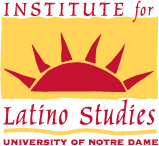
As our nation’s youngest, longest-lived and fastest-growing labor force, understanding the savings and retirement security of Latinos is of national importance.
Confianza, Savings, and Retirement is a newly-published report examining the social, cultural, and economic factors influencing Chicago-area Mexican immigrants’ savings and preparedness for retirement. (“Confianza” means a “bond of mutual trust,” and is the word Mexicans use for the intangible resource or cultural capital that carefully builds to establish social wealth and security.)
Conducted by Karen Richman of the University of Notre Dame’s Institute for Latino Studies and funded by the National Endowment for Financial Education, the study combines ethnographic research conducted in the Chicago metropolitan area in 2009 and 2010 with statistical analyses of large national, local, and comparative data sets.
According to the findings, Mexican Americans, who comprise two-thirds of the Hispanic or Latino population, have lower savings and pension participation rates than any other major demographic group in the United States. They are less likely to work for employers who sponsor pension programs, but even when they are eligible for employer-sponsored retirement savings programs, they are less likely to take advantage of the opportunity.
The study also notes that between 2005 and 2009, Latino households’ assets fell 66 percent, from $18,359 in 2005 to $6,325 in 2009, compared to a 53 percent decrease for black households and a 16 percent decline for white households.
Conventional economic theory attributes low retirement accumulation to poverty and insufficient lifetime resources. However, this study examines how cultural, social, and transnational factors influence savings, and the findings can complement and transcend conventional approaches to retirement research.
Mexican Americans often build “social wealth” as a substitute for financial assets in their retirement planning, making economic choices about how to build assets and resources based on non-economic factors. They “invest” in people, with the expectation of future return, by contributing gifts, services, money, time, as well as affective support. Mexicans’ culture of interdependence or collectivism, their extended family households, and their transnational social networks are key determinants of how they define investment and prepare—or do not prepare—for retirement.
The current recession has taken a devastating toll on Latinos’ ability to prepare for retirement. “Confianza, Savings, and Retirement” explores the dynamic nature of Mexican immigrants’ cultural values and practices in order to develop policies and communication programs that will help increase financial literacy and the likelihood of retirement coverage.
Contact: Karen Richman, principal investigator, Institute for Latino Studies, 574-631-8146, krichman@nd.edu